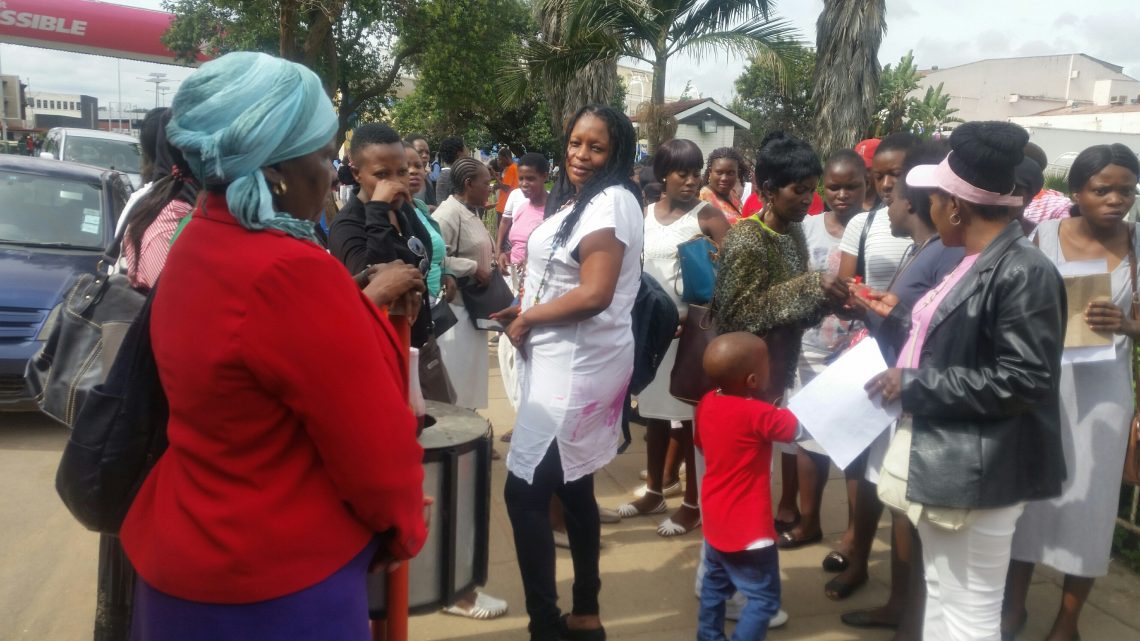By Byron Mutingwende
Women and girls need free sanitary wear so as to improve their sexual reproductive and health rights (SRHR), Priscilla Misihairambwi-Mushonga, the Chairperson of the Parliamentary Portfolio Committee on Women and Youths has said.
Misihairambwi made the call during the #Happy Flow Campaign Zimbabwe that seeks to tackle seven points meant to improve women’s access to SRHR. The initiative is being spearheaded by Katswe Sistahood and the Sothern African Development Community Parliamentary Forum (SADC PF).
“As Chairperson of the Committee on women and youth I automatically become a member of the SADC PF. The SADC PF has a whole programme on SRHR. The campaign for women’s access to sanitary wear should not only end in Zimbabwe but should cascade to the whole SADC region. We are taking this campaign to reduce the price of sanitary ware and even where possible to make them free so that every woman and girl enjoys her SRHR,” Misihairambwi said.
The legislator said a woman who has a normal menstrual cycle of seven days uses three packets of sanitary pads. Each packet costs between $1 and $,1 50. This translates to about $4, 50. In Zimbabwe and many countries in the region, most women live on less than a dollar a day yet a normal African family comprises between three to four women.
“Most young girls don’t go to school during their menstrual cycle. They lose between 150 to 160 days of learning per year. That means they won’t be at the same level with boys in terms of access to education. This affects he efforts to address the inequalities between boys and girls. When we fail to provide sanitary wear, we will be sending the message that it will be normal for girls not to go to school,” Misihairambwi said.
Kessia Musona the main actor in the popular television drama “Muchaneta” said the initiative was important since it seeks to empower women.
“I have participated in the march from Town House to Harare Gardens because I know our necessities and requirements differ from one woman to the other when it comes to the duration of the menstrual flow. Our government should incorporate such issues in the Budget. The new dispensation led by President Emmerson Mnangagwa should include such issues in its 100-day programme to turn around the economy,” Musona said.
Talent Jumo, the Director of Katswe Sistahood said among the seven points espoused in the campaign was the need for standardised, affordable prices for sanitary wear through scrapping of duty of raw materials and price controls.
“We are also looking at lobbying for investment in sustainable menstrual productslike menstrual cups and re-usable pads. We are also pushing for a mandatory, sustainable sanitary wear budget in every government institution and public spaces,” Jumo said.
The women are calling on communities, families, religious institutions and schools, to invest time in raising awareness on menstruation; so as to demystify and destigmatise menstruation.
In pursuit of campaigning for free sanitary wear in schools there is a strategy to push the government to approach giants such as the United Nations and Britain’s Department for International Development to prioritise girls and young women’s health and wellness; and aid with funding for providing free sanitary wear, especially for girls from low income communities.
“We should introduce and incentivise gender-sensitive social corporate responsibility policies by companies and investors. We have seen their commitment to soccer. We would like to see them address women and girls’ needs through the provision of sanitary wear to girls in the communities they serve.
“Resourcing for women’s menstrual health needs is critical to avoid vaginal infections that may result from unhygienic, unsanitary alternatives such as newspapers, cow dung, crushed maize cobs, and rugs. The young women are calling for a national menstrual levy; just as we have an AIDS levy.”






